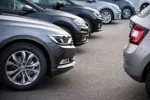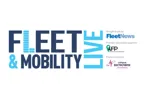The fleet industry is being urged to be wary of garages which have not signed up to accreditation schemes that reach the Kitemark standard.
Ensuring accident repairs to fleet vehicles are fit for purpose is key to managing risk and BSI is warning fleet operators that garages and bodyshops which cut corners could end up landing them in court.
“The Kitemark scheme is the most robust of them all,” said Claire Lynam, head of global marketing communications at BSI Product Services.
“We don’t have any affiliation to the automotive industry, we’re not subsidised by anybody and once we’ve audited a garage against the Kitemark criteria, we then go back at least annually to carry out further checks.
“There are some schemes that you can just simply sign up to online, you download the logo and you’re ready to go. That’s just not good enough. People need to be able to trust an accreditation scheme.”
However, there are several other respected schemes available to garages, including rival mark CarsQA.
And, with the first case of a company facing charges under the Corporate Manslaughter Act (Fleet News, April 30), confidence in the level of service is crucial to fleets managing risk, according to Smith.
To obtain the Kitemark, businesses must address key areas, including customer service and facilities; the quality of workmanship; ability to use equipment available; technical inspection; and fair and transparent billing.
“The Kitemark demonstrates to fleet managers that best practice and due diligence has been applied,” explained Smith. “But, while it won’t go all the way to making them compliant with corporate manslaughter or various other health and safety legislation, it will go a long way towards helping them to do so.”
David Faithful, a consultant solicitor with Lyons Davidson and prominent expert in the field of fleet risk management, agreed.
“The problem for fleet managers is that they cannot delegate the responsibility for health and safety in respect of vehicle servicing and repair – the buck still stops with them,” he said.
“To demonstrate that they are discharging their own corporate responsibility obligations they should use manufacturer-recognised competent garages or bodyshops.
“The BSI Kitemark scheme should therefore be applauded as giving fleet managers some assurance of the quality procedures in place.”
However, he added: “It should be remembered that the assessment and its audit trail processes may also provide the garage or workshop with the makings of a defence against an allegation of defective workmanship as well.”
- For details on Kitemark certified garages and bodyshops, visit www.kitemarkautomotive.com.
On the next page: Read the GB Flint Coachworks case study and Nick Smith, head of engineering at Total Accident Management gives offers his view on the Kitemark scheme.
Case study - GB Flint Coachworks
GB Flint Coachworks was awarded the BSI Kitemark in April 2008 and was one of the first companies to receive the award.
Carl Flint, managing director of GB Flint Coachworks, said: “The BSI standard is the way forward for the industry to show the public that we are reputable, ethical and always act in the customer’s best interests. It also ensures that vehicles are repaired correctly to ensure the safety of passengers.”
In 2007, BSI and Thatcham developed PAS 125, a specification for vehicle bodywork repair, with the ensuing Thatcham BSI Kitemark scheme providing independent certification that a bodyshop is competent to safely repair vehicles in accordance with the standard. There are 295 PAS 125 approved bodyshops and 496 waiting to be approved.
The corresponding Kitemark scheme for garage services ensures that the standards of PAS 80 are met and maintained for the servicing and repair of vehicles. There are 131 PAS 80 approved garages and 32 waiting to be approved.
The accident management company's view
Many fleets use accident management companies to deal with repairs and Total Accident Management is one such company.
It insists that all new garages and bodyshops must be Kitemark approved and it is committed to achieving the same status with its existing partners by the end of 2009.
“We also need to have confidence that technicians are trained and equipped to a satisfactory and safe standard,” explained Nick Smith, head of engineering at Total Accident Management.
“A Kitemark is a way of demonstrating this ability and helps to drive standards up across the entire industry.”
But, with garages having to pay a fee for the Kitemark scheme, Smith insisted they made no differentiation where cost was concerned between approved and non-approved Kitemark repairers.



















Joe Malone - 08/08/2013 23:45
Oh the irony, GB Flint are not an ethical company. I had accident damage repaired to the front near side corner of my Alfa and I knew the air filter box was smashed behind the bumper because I'd just had the car serviced by an Alfa specialist who found it when he changed the air filter. I told Colin from Flints that the air filter box was smashed when I took the car in for accident repair and was told it would be attended to. Picked the car up a week later and all appeared well on the surface. Flints are very good at making you feel very important and cosseted through the process but don't let that fool you. Next service we found that not only was the air filter box still smashed but they hadn't even changed the smashed wheel arch liner. Back to Flints to complain and had to chase them for a response before being eventually told that it was nothing to do with them and I must have had another bump that caused the damage. I even left the car parked outside their garage with a large notice on the windscreen for 24 hours but of course I found out the true nature their customer service and their standard of work. Shoddy.